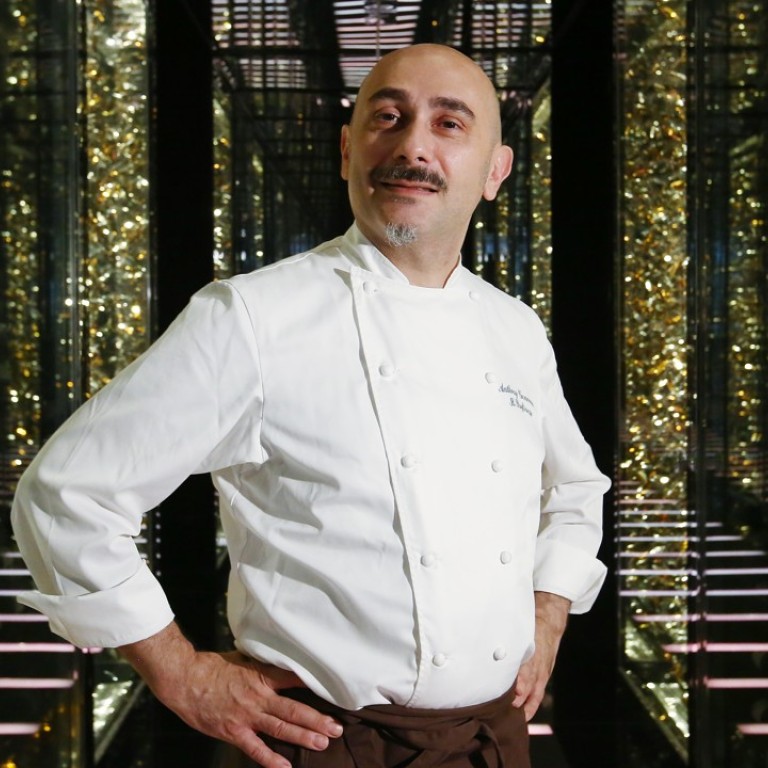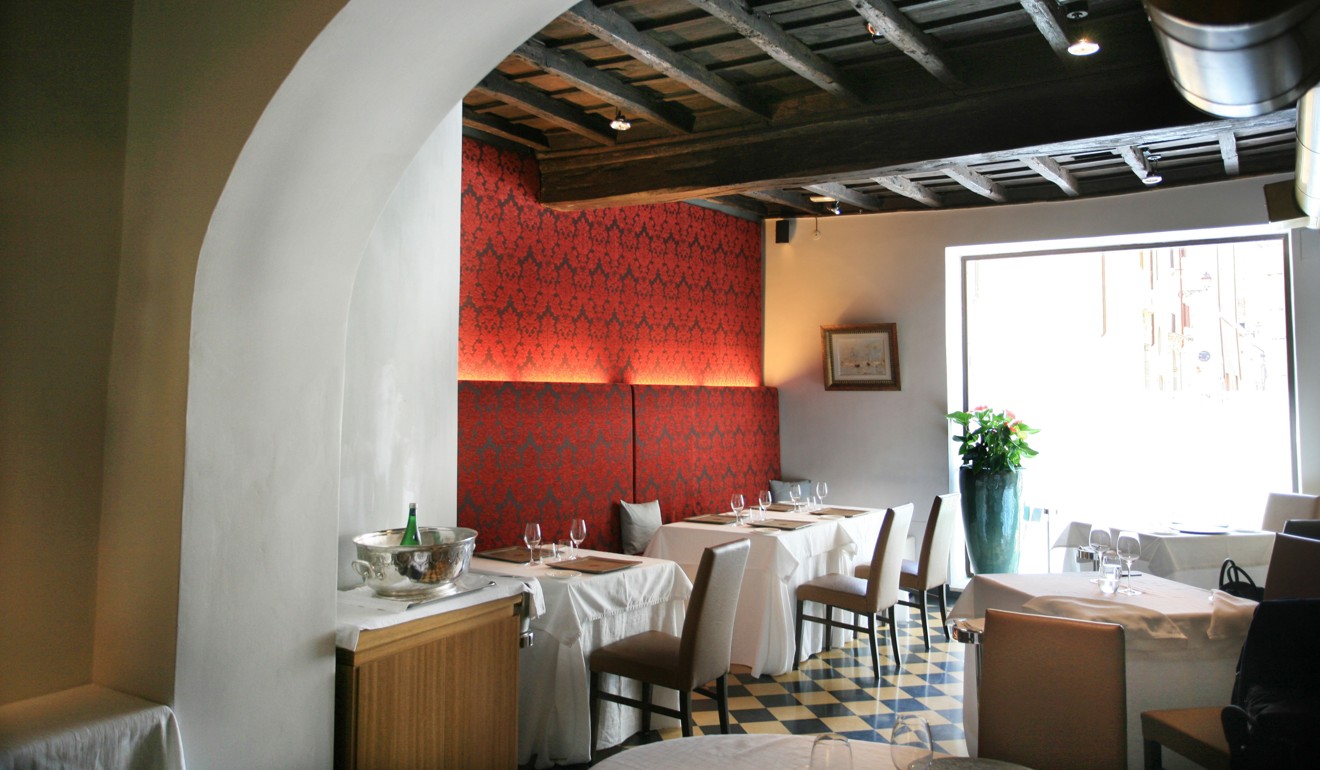
How Michelin stars sold fickle Italians on Asian flavours of France-born Italian chef’s food
French-born Anthony Genovese recalls how Il Pagliaccio’s Italian fare with an Asian twist, born of stints in Tokyo and Bangkok, was initially rejected by the public but everything changed when the restaurant earned two Michelin stars
What was your childhood like? “I was born in France in 1968 – in the Haute-Savoie [region], which borders Italy. My family is from the south of Italy, but my grandfather moved to France after the war. He was a pastry chef in Sicily but he couldn’t get work so he became a builder in France. They didn’t like Italian people then. My grandmother cooked simple food, but she and my mum were not good cooks. I was a bad student at school.”
How did you get into cooking? “I went to culinary school in Nice and afterwards worked in not very good restaurants. A friend suggested I do something different – fine dining. At the age of 16, I was a stagiaire in a two-Michelin-starred restaurant in Monte Carlo. That was my calling. I saw fresh produce, and the kitchen was so clean. I spent a few years [working] in France but my heart and soul were in Italy. I respect France but don’t feel French. Maybe it’s because they didn’t respect my family. France was not kind to them but it taught me to respect Italy.
“In France, in the late 1980s and early 90s, it was all about French cuisine and nothing else. When I decided to move to Italy in 1990, my French chef said, ‘Why do you want to go back and make pizza?’ My big shock moving to Italy was that they don’t use that much cream and butter, and they eat chickpeas with fish, olive oil and herbs.”
The British chef behind Hong Kong’s latest Italian restaurant
You lived in Japan in the early 1990s. What was that like? “In 1992, I went to Tokyo to open Enoteca Pinchiorri [as head chef of the Italian restaurant] and I knew nothing about Japan. They treat food there like a religion. The Chinese respect the culture of eating, but for the Japanese it’s all about the ingredients and how they prepare their food.
“I was in Tokyo for almost two years. It was hard to live there because they didn’t like foreigners at that time. I was too young to understand the opportunity of being there. Japanese society is closed; they are proud people. But when I was there I was so fascinated with Japanese food that I told my chefs I wanted to learn about Japanese ingredients so I learned about raw fish, soy sauce, ginger, how to cook vegetables.”
What else did you learn during your time in Asia? “After Japan I was in Bangkok for a year and it was completely new for me. Now I incorporate what I learned from Asia in my cooking and use ginger, curry powder and coconut milk.
“You have to spend time in Asia, not come for a few days and think you know how to use spices. I have a dish of lobster that’s practically raw with citrus butter, pepper, turnip and potato in a bisque with coconut milk, lime, galangal, lemongrass, ginger, fish sauce, curry powder and turmeric.”
How did Rome react to your restaurant, Il Pagliaccio, when it opened in 2003? “Guests and journalists didn’t understand what I was doing. They said they like going to a Chinese or Indian restaurant, but not this. Inside I was depressed. I didn’t have much business, but I never compromise. My blood is from the south of Italy, where we are very tough. I said to my cooks, ‘If we have to die, we die for what we believe in.’ Now Rome is different. The younger generation is more open to trying different cuisines because they travel more.”

What was it like to earn two Michelin stars? “In 2006, I got my first Michelin star. I was happy and felt like I was on the right path. In 2009, when I got my second star, that’s when I felt vindicated – you have to accept me for who I am! I got more customers, 70 per cent of whom were foreigners. It’s a pity that Romans will only come to my restaurant a few times a year. It takes three hours to enjoy 10 dishes, but they prefer to eat something simple and quick.”
How about a third star? “It would be a dream but it’s so hard to get. The first time I got the star it was perfect. I cannot explain how I got it, but I was lucky, in the right place at the right moment. I don’t wake up every day thinking, ‘How can I get another star?’ I just think about how I can do a good job and make my guests happy.”
Anthony Genovese was in Hong Kong recently as guest chef at Tosca, in The Ritz-Carlton.

